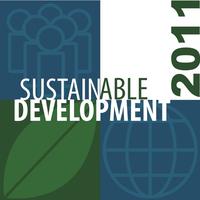 La Salle University held its first ever Sustainability Symposium, “Sustainability: Is It More Than We Think?” on Saturday, March 19. I was able to make it for certain portions of the symposium, and yes, sustainability is more than we think, globally and especially locally. The event, which began bright and early, drew in a decent sized crowd of interested locals, business owners, and La Salle faculty and students. The interdisciplinary symposium did its job to challenge people’s notions of sustainability and certainly expanded my current understanding of the surrounding, ever-changing community.
La Salle University held its first ever Sustainability Symposium, “Sustainability: Is It More Than We Think?” on Saturday, March 19. I was able to make it for certain portions of the symposium, and yes, sustainability is more than we think, globally and especially locally. The event, which began bright and early, drew in a decent sized crowd of interested locals, business owners, and La Salle faculty and students. The interdisciplinary symposium did its job to challenge people’s notions of sustainability and certainly expanded my current understanding of the surrounding, ever-changing community.
The day began with an eye-opening message, “From Sustainable Development to Sustainable Well-Being,” delivered by the keynote speaker, Dr. Maurie Cohen, associate professor and Director of the Graduate Program in Environmental Policy Studies at the New Jersey Institute of Technology. He highlighted our country’s history of economic growth and the heavy toll it has taken on the planet.
“Renewables grow rapidly, but under current policies, fossil fuels will still provide 78 percent of U.S. energy use in 2035,” Cohen explained.
The U.S.’s carbon footprint could be smaller, and Dr. Cohen wanted to explore ways to move away from the somewhat weak understanding of sustainable development to a stronger commitment to a sustainable well-being.
More event details after the jump!
The day continued with breakout sessions with either a local, national, or global focus. I was able to be a part of the local focus, “From Alienation to Appreciation: Sustainable Designs for Local Action.” The session was facilitated by Jacob Gordon, Project Manager and In-House Counsel for Cooper’s Ferry Development (CFDA) in Camden, NJ, Joan Hill of the Chew-Chelten Avenue Business Association, and Shanta Schachter, Deputy Director of New Kensington Community Development Corporation of Philadelphia.
1. Gordon highlighted the works of the Cooper’s Ferry Development Association, which included the future development of a waterfront promenade designed by the community. Overall, the CFDA works as a non-profit corporation which focuses on high-quality urban redevelopment in Camden.
2. Shanta Schachter explained how she has extended her hand to help Kensington become the greenest neighborhood in Philadelphia. Through her work at Sustainable 19125, community residents, businesses, and numerous government, nonprofit, and for profit partners have succeeded in greening the Fishtown, Olde Richmond, and East Kensington neighborhoods. Numerous developments have taken place, large and small, from waste and graffiti removal, to the emergence of new businesses. Schachter believes that their collective actions act as a model for the rest of the city.
3. Joan Hill explained how she started the Chew Chelten Avenue Business Association, in a section of Philadelphia known for its prostitution rings and drugs, not its gardens. She took a stance in bettering her local community and began this greening and gardening initiative. Drastic before and after photos showed how the association was making a difference.
Many of the audience members were concerned about effective outreach to residents. The panelists explained that it may even take a door-to-door campaign, since many of the local residents don’t own computers. Social networking and e-mail blasts become irrelevant in places such as this.
Regardless of the hurdles, “We must be a part of the catalyst for change,” urged Hill.
The audience also complained about costs, but Schachter left them with some hopeful words, “It’s more of an organizing effort, than a costly one. Collaboration is key.”






